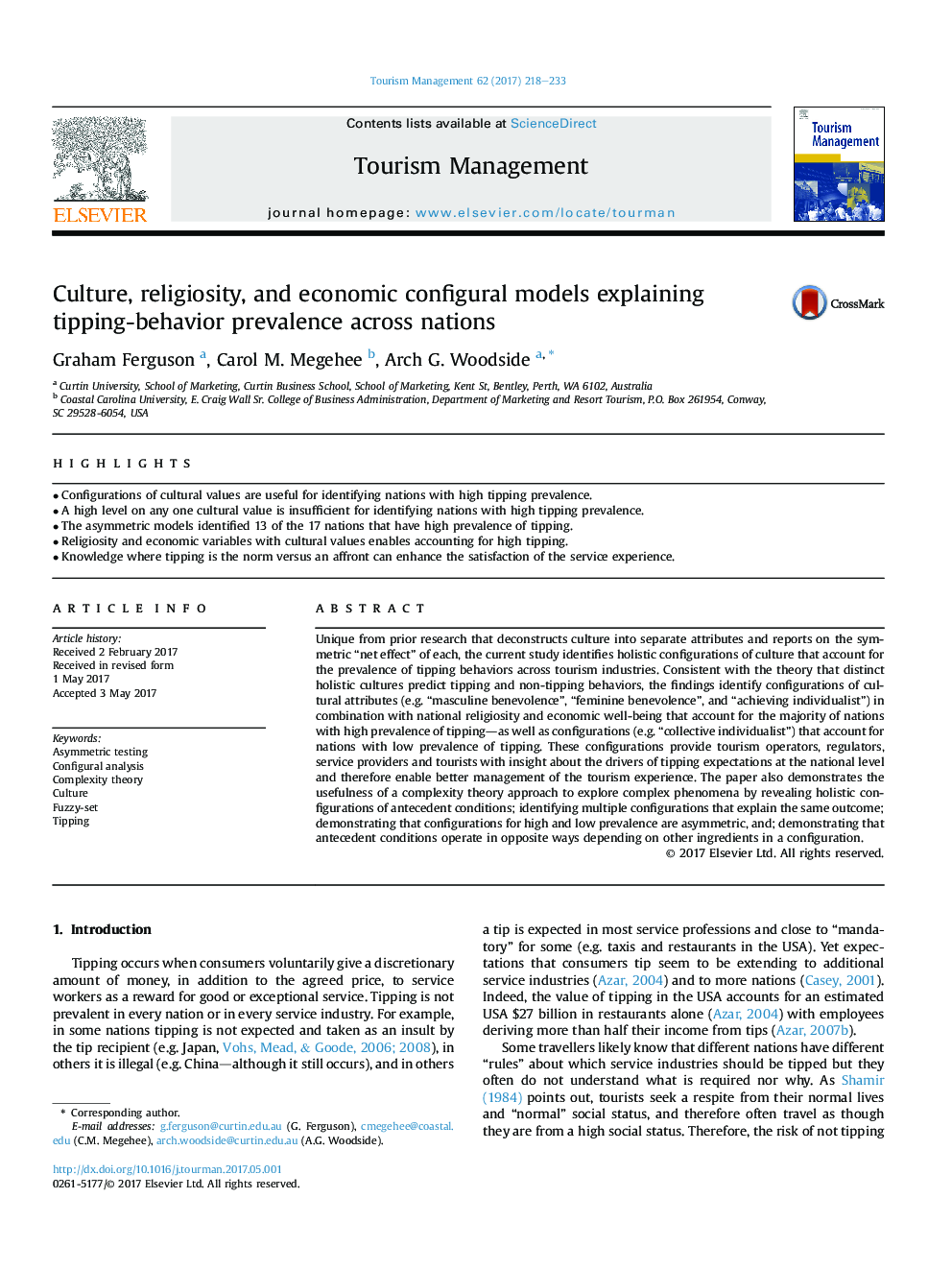| Article ID | Journal | Published Year | Pages | File Type |
|---|---|---|---|---|
| 5108632 | Tourism Management | 2017 | 16 Pages |
Abstract
Unique from prior research that deconstructs culture into separate attributes and reports on the symmetric “net effect” of each, the current study identifies holistic configurations of culture that account for the prevalence of tipping behaviors across tourism industries. Consistent with the theory that distinct holistic cultures predict tipping and non-tipping behaviors, the findings identify configurations of cultural attributes (e.g. “masculine benevolence”, “feminine benevolence”, and “achieving individualist”) in combination with national religiosity and economic well-being that account for the majority of nations with high prevalence of tipping-as well as configurations (e.g. “collective individualist”) that account for nations with low prevalence of tipping. These configurations provide tourism operators, regulators, service providers and tourists with insight about the drivers of tipping expectations at the national level and therefore enable better management of the tourism experience. The paper also demonstrates the usefulness of a complexity theory approach to explore complex phenomena by revealing holistic configurations of antecedent conditions; identifying multiple configurations that explain the same outcome; demonstrating that configurations for high and low prevalence are asymmetric, and; demonstrating that antecedent conditions operate in opposite ways depending on other ingredients in a configuration.
Related Topics
Social Sciences and Humanities
Business, Management and Accounting
Strategy and Management
Authors
Graham Ferguson, Carol M. Megehee, Arch G. Woodside,
